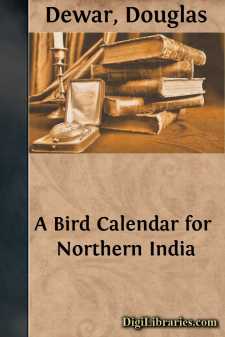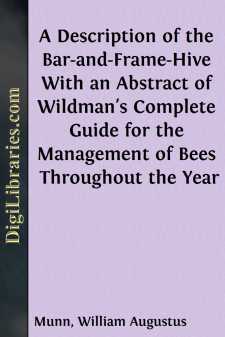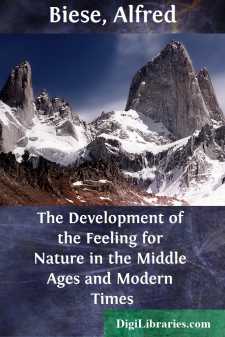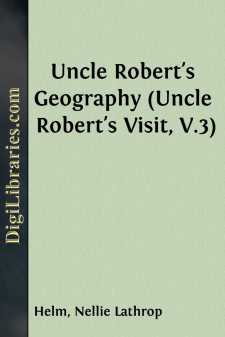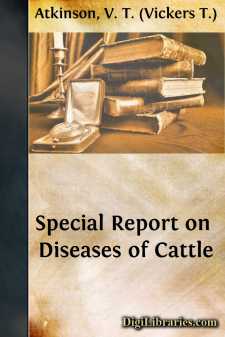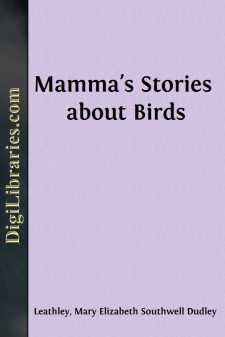Nature
Nature Books
Sort by:
by:
Douglas Dewar
JANUARYMH Take nine-and-twenty sunny, bracing English May days, steal from March as many still, starry nights, to these add two rainy mornings and evenings, and the product will resemble a typical Indian January. This is the coolest month in the year, a month when the climate is invigorating and the sunshine temperate. But even in January the sun's rays have sufficient power to cause the...
more...
PREFACE Having been frequently requested to explain the use of the bar-and-frame-hive, in the management of bees, I have been induced to print the following pamphlet, to point out the advantages this new hive possesses over the common ones. I have added extracts from various authorities to show the importance of transporting bees for a change of pasturage, and thus prolonging the honey harvest....
more...
by:
Alfred Biese
INTRODUCTION Nature in her ever-constant, ever-changing phases is indispensable to man, his whole existence depends upon her, and she influences him in manifold ways, in mind as well as body. The physical character of a country is reflected in its inhabitants; the one factor of climate alone gives a very different outlook to northerner and southerner. But whereas primitive man, to whom the darkness of...
more...
DEVELOPMENT OF THE DIGESTIVE CANAL OF THE AMERICAN ALLIGATOR By ALBERT M. REESE Professor of Zoology, West Virginia University In a previous paper () the writer described the general features in the development of the American Alligator; and in other papers special features were taken up in more detail.In the present paper the development of the enteron is described in detail, but the derivatives of...
more...
by:
Carl Lumholtz
PREFACE Ever since my camping life with the aborigines of Queensland, many years ago, it has been my desire to explore New Guinea, the promised land of all who are fond of nature and ambitious to discover fresh secrets. In furtherance of this purpose their Majesties, the King and Queen of Norway, the Norwegian Geographical Society, the Royal Geographical Society of London, and Koninklijk Nederlandsch...
more...
The publishers take pleasure in offering to the public, in their Home-Reading Series, some books relating to the farm and other aspects of country life as the center of interest, written by Colonel Francis W. Parker, the President of the famous Cook County Normal School, in Chicago. For many years the teachers of the common schools of the country have been benefited by the inventions of Colonel Parker...
more...
Medicines may be administered to cattle in many ways. The channel and method of administration depend on whether a general or local effect is desired, the condition of the animal, and the nature of the medicine that is to be given. The easiest method, and therefore the most common, is to give ordinary remedies by the mouth with the food, with drink, or separately. There, are, however, some conditions...
more...
THE EAGLE. The Eagle is often called the King of Birds, and therefore it is of him that we ought to speak first. Very likely you have often seen eagles in the Zoological Gardens, and, if so, you know what noble looking birds they are. But they seem very sad in their prison-houses, to which no kindness can ever attach them. They are formed to soar boldly to the top of some lonely mountain height, and...
more...
by:
John Burroughs
THE BLUEBIRD It is sure to be a bright March morning when you first hear the bluebird's note; and it is as if the milder influences up above had found a voice and let a word fall upon your ear, so tender is it and so prophetic, a hope tinged with a regret. There never was a happier or more devoted husband than the male bluebird. He is the gay champion and escort of the female at all times, and...
more...
by:
John Burroughs
UNDERTHE MAPLESITHE FALLING LEAVESThe time of the falling of leaves has come again. Once more in our morning walk we tread upon carpets of gold and crimson, of brown and bronze, woven by the winds or the rains out of these delicate textures while we slept. How beautifully the leaves grow old! How full of light and color are their last days! There are exceptions, of course. The leaves of most of the...
more...


